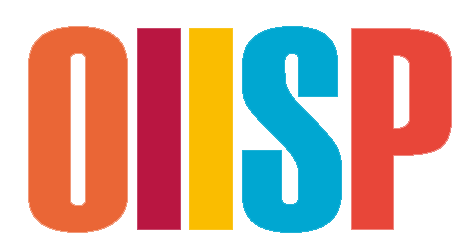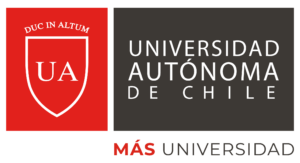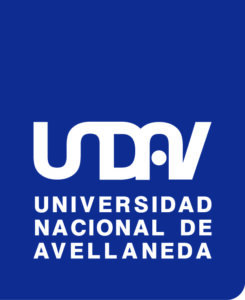After more than 50 years of conflict in Colombia, numerous programs, organizations and institutions have based their work on the premise that the arts play a vital role in developing communities affected by such violence and conflict.
This initiative began in 2018, when Fundación Universitaria Juan N. Corpas participated in a course for medical students about health indicators for decision-making at Universidad UNIVA in Guadalajara and at Universidad San Martín de Porres in Lima. The course was conducted in accordance with the principle of constructing framed indicators with a common purpose , such as the achievement of the principles outlined by the Sustainable Development Goals.
This initiative was established in 2018, in which year the International School of Social Innovation was founded by Fundación Universitaria Juan N. Corpas, Tecnológico de Antioquia - IU, Instituto Tecnológico Metropolitano and Fundación Universidad de América. The initiative aims to generate collaborative internationalization strategies which contribute to the social development and the strengthening of Colombia’s higher education.
The Programa Delfín (Delfín Program) maintains its goal of strengthening collaboration between Higher Education Institutions and Research Centres through mobilities , as well as the dissemination of scientific and technological products.
The Inter-American Organization for Higher Education (IOHE) is a network composed of more than 350 members, higher education institutions, research centres and national, regional and international university associations.
The Association of American Medical Colleges (AAMC) is an organization which represents medical schools, university hospitals and academic, scientific organizations, providing consultancy services, health studies and medical education
The University Twinning and Networking Programme (UniTwin) joins together more than 850 institutions in 117 countries, strengthening cooperation and inter-university links in order to strengthen institutional abilities through collaboration and knowledge exchange.
The Colombian Internationalization Network (Red Colombiana de Internacionalización or RCI) by the Asociación Colombiana de Universidades (ASCUN) is a space which looks to promote and facilitate settings, actions and collaboration projects which contribute to the strengthening of higher education internationalization throughout the country.
The International Teaching Research Network (Red Internacional Sobre Enseñanza de la Investigación) is an academic organization which strengthens interaction between teaching staff, researchers, high schools, higher education institutions, and NGOs among other entities, in order to strengthen research training.
The American Heart Association (AHA) is an organization in the United States with a global presence. It is dedicated to preventing cardiac diseases and promoting good practice in order to reduce mortality among those with cardiovascular conditions.


Description: CityMove seeks to research how active and healthy urban environments contribute to reducing non-transmissible diseases. The project examines the impact of 13 physical activity-focused interventions in six cities across three continents, in accordance with the Global Action Plan on Physical Activity (GAPPA). Furthermore, CityMove will develop an evaluative framework, aiming to facilitate the scalability and transferability of the initiative to strengthen and boost physical activity among the least active and most vulnerable. Partners: University of Antwerp, Erasmus University Rotterdam, Walk 21, City of Antwerp, Ljubljana Community Health Center, University of Essex, Universidad Nacional Agraria La Molina y Makerere University.
Financed by: The European Union.
Website: https://citymove.info/

Framing Peace trains and collaborates with young filmmakers, creating an impactful 52-minute documentary exploring the implementation of the Colombian Peace Process, with particular emphasis placed on the Capítulo Étnico (the various ethnic groups and communities most affected by conflict in Colombia). The program is designed in a way which achieves its goals through a multifaceted approach, combining theoretical and practical learning, experiential documentary production and community engagement. Through personalized activities, participants acquire skills and resources which allow them to produce a compelling documentary which educates the wider community on the Colombian Peace Processes and the Capítulos Étnicos, while also highlighting the role the United States played in these processes. The program covers several phases, each of which build on a previous element in order to produce a comprehensive understanding of the Peace Processes and the Capítulo Étnico. This project also brings together established university partners and a world-class audiovisual production company, all with a focus on creating a positive social impact, high-quality film production and educational components; these components also offer students credited academic hours through their participation in the program, in addition to internship opportunities for participants at the end of the program.


Meet LIVETAPLA!
The Internationalization Laboratory: Territorial Bonding and Social in Latin America (LIVETAPLA) was created due to the need to strengthen communication and internationalization processes within higher education, linking territories through the social projects and missions it manages .
LIVETAPLA’s aim is to create an innovative space for dialogue, reflection and the generation of knowledge from and for Latin America, where solutions to local social issues are co-created.
Our Partnership
Through LIVETAPLA we seek to contribute to the new policy of higher education internationalization in Colombia and throughout the region, promoting an exchange of ideas and practices which benefit our Latin American communities.
This project brings together the following group of universities: Fundación Universitaria Juan N. Corpas, Corporación Universitaria Minuto de Dios (UNIMINUTO), Universidad de los Llanos de Colombia, Universidad Autónoma de Chile, and Universidad Nacional de Avellaneda de Argentina. Carolina Franco, international education advisor, also works on the project.
LIVETAPLA is co-financed by ICETEX grants under the International Experts program, which allows us to expand our outreach and resources.
If you would like to learn more about our regional proposal and help us contribute to internationalization processes with impact, follow us on LinkedIn and scan our QR to receive more information.





Equity in Sustainable Health: Partnership for Public Health and Community Wellbeing sought to consolidate an International Interinstitutional Observatory for Public Health (OIISP) which acted as a collaborative space in order to contribute to the fulfilment of the United Nations’ third Sustainable Development Goal (SDG), being to Ensure healthy lives and promote well-being for all at all ages, alongside other health-related goals set out within the SDGs , to be implemented in rural and urban areas alike.

At this point in time, the students are currently developing a replicable teaching strategy which will promote the recognition of ancestral knowledge within the healthcare system.

The Public Health Hackathon 2024, organized by the OIISP and Fundación Universitaria Juan N. Corpas was held on the 4-5 October, bringing together 69 participants from a wide array of nationalities (seven countries) and disciplines in order to develop innovative solutions to public health challenges, combining creativity, technology and knowledge with the aim of proposing effective strategies to maintain and support the health of the general public.
https://oiisp.org/publicaciones/noticias/noticia4/

Gabriel Vélez
Dr. Gabriel Vélez, Professor at Marquette University in Milwaukee, USA, visited Fundación Universitaria Juan N. Corpas in December 2022 in order to develop an agenda in collaboration with all of the university’s schools. During this period, Professor Vélez developed a series of workshops, dialogue sessions and talks held across several days, in order to evaluate the curricula and academic work fulfilled. With this, he created a series of recommendations and instructions to allow Corpas to continue to grow within and beyond its academic pursuits.
Kawkab Shishani
Professor Kawkab Shishani, visiting from Washington State University, conducted work in collaboration with the Nursing School at Fundación Universitaria Juan N. Corpas. in order to help establish a future Master’s degree in School Nursing within the faculty. During her visit, meetings were held, addressing and initiating the creation of the program’s potential curriculum, in addition to discussing current work and state of affairs within the School Nursing setting in the United States and in Colombia. This was all complemented by an event attended by various different local authorities in the field, as well as many health professionals working in schools and educational institutions across the city of Bogotá.
Mobility Grants
In October 2022, six students and one teacher from the Nursing School participated in an international mobility to our partner institution: Universidad católica del Maule in Chile, aiming to promote international exchanges between the institutions and more generally, internationalization and other cultural engagements, thus providing the students with more opportunities to engage with globalized experiences within the nursing care sector. The student beneficiaries of the program were selected thanks to their noted academic excellence and favorability, which was prioritized by ICETEX.
This mission, taking place in October of 2023, aimed to familiarize students working within Public Health research with the different programs and activities conducted at the Complejo Comunitario Vida Plena (CCVP), a community centre at the Bahian School of Medicine and Public Health in Brazil and with the work carried out there, which emphasizes care and daily teaching, interdisciplinary work across the profession, multidimensionality of problems (through the paradigm of complexity) and the intersectionality of actions taken.
Immersion in the CCVP was extremely relevant for the participants, given the observed parallels between the institution’s practices and those of Centro Comunitario Lisboa in Bogotá, where the students conduct research in Colombia.
LIVETAPLA aims to strengthen internationalization and outreach processes with the wider community based on the social projection work it conducts by creating an Internationalization of Higher Education lab. This aims to collaborate on finding solutions to societal issues through using knowledge exchanges as a space for reflection and by generating new knowledge from and for Latin America. The initiative is being developed in collaboration with Universidad de los Llanos, Corporación Minuto de Dios, Universidad Autónoma de Chile, and Universidad National de Avellaneda in Argentina.




The Doble i Project: Innovation for Internationalization is an interinstitutional initiative designed with the aim of driving forward internationalization between the administrative staff members of the participating educational institutions. This project has been made a reality through partnership spanning across 10 Latin American universities, led by Fundación Universitaria Juan N. Corpas, in which 150 staff members engaged in a virtual course providing them with the tools and necessary knowledge to initiate innovative projects which boost collaborative-style innovation at their respective universities.
This resulted in 5 groups being selected as winners, who then participated in a weeklong in-person group event, during which they presented their projects to all the participants present, overcoming challenges and proposing new ways of realizing internationalization processes in their institutions. In addition to strengthening internationalization on a structural level within their own institutions, the project aims to solidify collaboration between institutions by sharing knowledge and enriching fellow experiences.